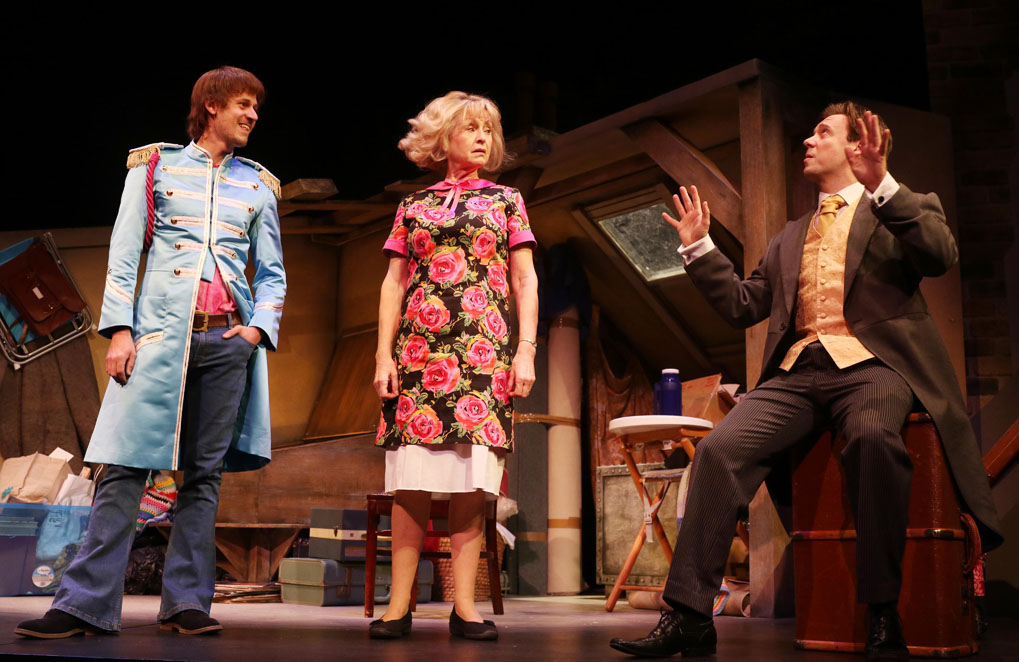
Hailing from ‘up North’, there’s a certain sort of conversational style I am well familiar with which I find so infrequent down here. Anyone with exposure to Alan Bennett’s musings on his mother will know the precise sort of nattering I am referring to, even if they haven’t come across it themselves. With her notorious eye for verisimilitude, Kay Mellor penned a play about her mother and the secret affair she had in decades gone by, and thus A Passionate Woman was born. The play captures perfectly the mode of idle reflection and fraught concern that can only be embodied by a northern matriarch, replete with many a wry observation along the way.
The play will be familiar to many, having been staged with some regularity since 1992 and with a BBC adaptation aired in 2010. But for those not in the know, A Passionate Woman concerns Betty, (Liza Goddard) who ends up reflecting on her life and a particular past love as she tidies in the attic on the day of her son’s wedding. Her son Mark (Antony Eden) and eventually boorish husband Donald (Russell Dixon) try to coax her down to attend the ceremony whilst she starts talking to the apparition of her dead lover Craze (Hasan Dixon). It’s a small but well-focussed piece that excels when it is playing these increasingly desperate personalities off of each other.
Commendations can be spread around for performances. The strained parental relationship between Mark and Donald gives the actors a great deal to get their teeth into in the second half but as good as Dixon and Eden are, this is Goddard’s show. Kay Mellor used ample autobiographical details to construct the piece and Goddard milks every drop of that believability out of the script. She is very much the host of the performance and the play would not work if she was not spot on.
If I have any reservations it’s to do with a few overly quaint aspects woven into the play’s fabric. Though I have plenty of time for the well-observed and suitably fraught dialogue, the inclusion of the ghostly figure of Craze who only Betty can see strikes me as an overly twee and unnecessary device to provoke the protagonist’s reflection on her life. The finale is overtly farcical and by no means ineffectual at scoring laughs but does feel like a speedy and convenient way to resolve a situation otherwise grounded very realistic interpersonal drama (but for the spectral element). This is by no means particular to this performance, naturally since it is written into the script, and most attendees will not share my reticence to suspend disbelief.
Minor gripes aside, what you are left with a fiercely well-performed play that captures the pathos and humour of marriage and children, all within the pleasant framework of having a natter in the attic. ★★★★☆ Fenton Coulthurst 18th February 2017
Photo by Antony Thompson, Thousand Word Media www.thousandwordmedia.com

